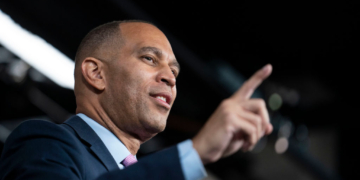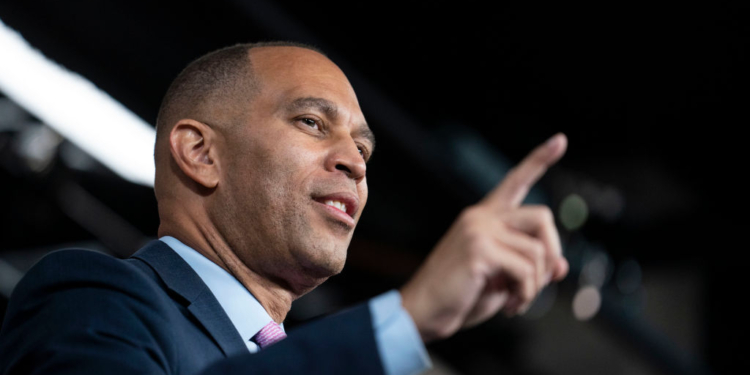House Democrats have rejected a Republican proposal to keep the government funded beyond March 14 to avoid a government shutdown after Republican leaders rejected write in protections against further job cuts for federal workers.
According to The Wall Street Journal, House Minority Leader Hakeem Jefferies (D-N.Y.) and other members of his team had written in a letter to their colleagues that the offer “is not acceptable.”
“Republicans have decided to introduce a partisan continuing resolution that threatens to cut funding for healthcare, nutritional assistance and veterans benefits through the end of the current fiscal year,” Jeffries’ letter reportedly read. “That is not acceptable.”
The funding bill will be making its way to the floor next week, and WSJ further reported that House Speaker Mike Johnson (R-La.) has relied on Democrats to push through legislation in the past, which would present a roadblock if they decided to nix the bill and force Johnson to gather all Republican votes in support.
Republicans currently hold a slim 218-214 majority in the House; however, Johnson has reportedly said he is confident he would be able to get the votes to pass the funding bill.
Last month Republicans managed to pass the budget’s framework for tax cuts and a border package mostly along party lines, only missing out on full Republican support by a single vote.
The House speaker has also said that it will be the Democrat’s fault if the government does go into a shutdown.
“The Democrats threw in this outrageous requirement, the stipulation, hey, we won’t fund the government unless you tie the hands of the executive branch,” Johnson told Fox News on Friday.
Johnson added that Democrats “know we will not do that,” adding, “It looks like they were trying to engineer a shutdown of the government, which is terribly irresponsible.”
WSJ reported House Republicans could unveil their spending measure late Friday, and noted that a continuing resolution, which funds the government until the end of the year, would extend funding at the prior year’s levels. This could put significant strain on efforts to launch new government programs.

























